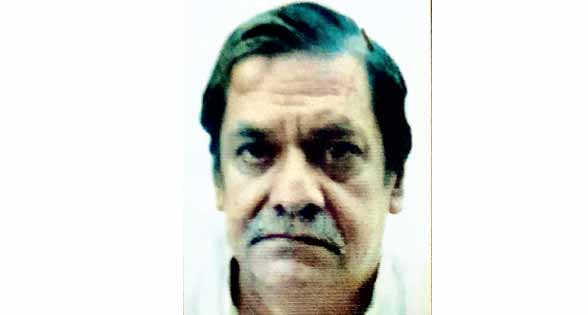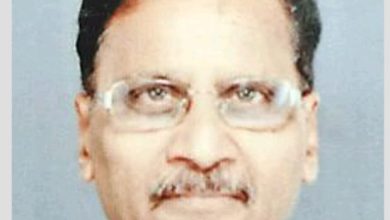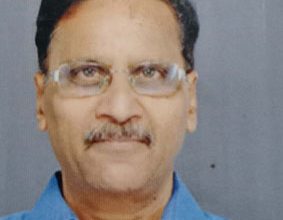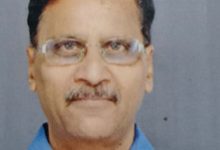Reinventing Congress: Reconstituted CWC reflects a bid for change
-YASH PAL RALHAN

The winds of change are sweeping through the corridors of the Indian National Congress as the party takes a significant step towards redefining its identity and strategies. The reconstitution of the Congress Working Committee (CWC) not only signifies a renewal of leadership but also reflects the party’s earnest endeavour to revitalize itself ahead of the impending electoral battles.
This transformation, marked by the inclusion of fresh faces and the infusion of diverse perspectives, points towards a resolute effort to break free from stagnation and infuse new life into the grand old party of Indian politics. As the Indian political landscape prepares for the challenges of the forthcoming elections, the revamped CWC emerges as a strategic move by the Congress to reposition itself in the hearts and minds of the people. The party’s inability to secure a Leader of Opposition role in the Lok Sabha, a reflection of its underwhelming performance, serves as a poignant reminder of the urgency for change. This restructuring is more than just a symbolic gesture; it is a deliberate attempt to shake off the cobwebs of complacency and rejuvenate the Congress’s ideological spirit.
President Mallikarjun Kharge’s decision to reshape the CWC holds deeper significance. By incorporating members associated with the G23 group, the party exhibits a willingness to embrace diverse perspectives and promote collective decisionmaking at the highest echelons. However, the real litmus test lies in whether this newfound inclusion translates into a substantive shift in the party’s decision-making dynamics or remains confined to a symbolic gesture. The reconstituted CWC, while commendable, raises questions about the depth of change within a party that has long been synonymous with the Gandhi family’s leadership. Breaking away from this entrenched tradition presents a unique challenge, yet it also signifies the party’s conscious efforts to explore new avenues. The Congress faces a pressing need to reinvigorate its ideological commitment and strategic acumen, effectively bridging the gap between its historical roots and the evolving demands of a dynamic nation. The current void in the party’s intellectual and spiritual fabric has been growing for years, reflected in its prolonged absence from power in states like Tamil Nadu,West Bengal, and Gujarat. The writing on the wall is clear – a fundamental reevaluation of approach and ideology is necessary to recapture the hearts of the electorate. The reconstituted CWC, if willing to confront this deep-seated challenge head-on, could herald a transformation that goes beyond party lines, impacting the national political landscape.
The induction of prominent figures such as Dr. Shashi Tharoor and Anand Sharma into the committee suggests a readiness to engage in deeper discussions on both ideological and operational fronts. Traditionally, ideological principles have been passed down through generations, but the true test lies in how the party addresses practical challenges posed by a rapidly evolving political landscape. The reconstituted CWC is expected to navigate these challenges while fostering an environment conducive to dissent and innovative thinking. One of the critical aspects of this transformation involves a flexible approach towards state units. Lessons should be learned from instances like Punjab and Delhi, where central leadership’s alliances clashed with local preferences. Prioritizing intra-party unity is paramount, as demonstrated by the inclusion of Rajesh Pilot in the CWC, reflecting a willingness to accommodate diverse voices.
The impending assembly elections, set to unfold within a few months, will serve as a testing ground for the Congress’s efforts at reinvention. The party’s performance in key states like Madhya Pradesh, Chhattisgarh, Rajasthan, Telangana, and Mizoram will have far-reaching implications for its ambitions and its role in the 2024 parliamentary elections. Successfully bridging the generational and ideological gaps remains a challenge, and Kharge’s balancing act demonstrates his commitment to maintaining unity within the party’s ranks. While the rejuvenation of the CWC holds promise, certain choices have been met with disappointment. The retention of figures like former Prime Minister Dr. Manmohan Singh and former Union Minister A.K. Antony, who are essentially retired from active politics, raises questions about the committee’s dynamism. Concerns also arise about regional representation, with Kerala seemingly overrepresented compared to Andhra and Telangana.
As the Congress prepares to lead the newly formed INDIA alliance against a formidable government in the Lok Sabha, it must navigate complex political terrains skillfully. Balancing alliances and competition in states like West Bengal, Kerala, Punjab, and Delhi will be pivotal. Additionally, the party faces challenges in states like Maharashtra, where alliance partners’ vulnerability to the BJP’s influence poses a unique set of obstacles.
The absence of Rahul Gandhi during the CWC reconstitution process in Ladakh suggests an effort by the Gandhi family to grant the President and the CWC greater autonomy. However, skepticism prevails regarding the extent of this change, given the historical dominance of the family. For the Congress to reap electoral rewards, the reconstituted CWC must wield the power to think and act collectively, unshackled from the limitations of the past. The journey towards transformation is underway; only time will reveal the true extent of the party’s metamorphosis.






